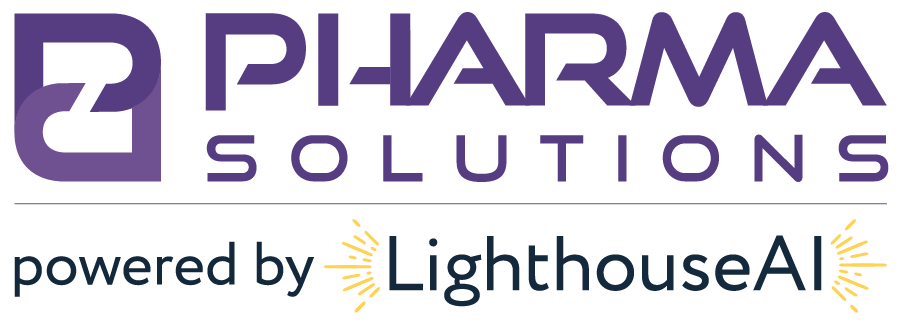NABP Violating DSCSA, Lawsuit Pending
Companies are starting to line up for a class action suit against the NABP, potentially reaching over 50 organizations across the United States.
Background on the VAWD Standard
It is VAWD standard that companies are “regularly establishing that prescription drugs and devices…were…not previously distributed to pharmacies, health care entities, or under special restricted pricing contracts, such as 340B, own-use, and closed-door pharmacy/long-term care including when the pharmacy, health care entity, etc has a wholesale distributor license.”
Intracompany transfers are not inherently against Federal or State law, but it is a very lucrative practice. With high volume, companies that engage in the practice not only pass along deep discounts but also secure a higher rebate from their primary wholesalers. As such, it is widely accepted that NABP is the only way for top guns of the industry to enforce the prevention of price arbitrage that negatively affects their bottom lines.
Over the past 6 months, NABP has issued over 50 cancellations to VAWD applicants. They base the cancellation on there being demonstrated proof that “sources that are dually-licensed as a wholesale distributor and a pharmacy and/or co-located with a pharmacy.” The cancellations have affected many distributors, from niche distributors to larger, established companies with over $200 million in revenue.
The Law
Title II specifically states that entities involving transaction data “shall maintain the confidentiality of the transaction information (including any lot level information consistent with the requirements of this section), transaction history, and transaction statement for a product in a manner that prohibits disclosure to any person other than the Secretary or other appropriate Federal or State official.”
Transactional data is sacred to a company – in fact, the industry has convinced the FDA to utilize a “distributed data model” over a “central repository” in the implementation of electronic interoperability. Electronic interoperability, basically, is that verification and authentication must be done by individual computer systems talking to each other, automatically. In other words, the industry convinced the FDA that it was better to set up eventually millions of integrations between each other, rather than every company “talking” to just one system.
Against the Law…But Is It Against the Spirit of the Law?
The law was most likely implemented for two reasons:
(1) to prevent counterfeiters access to key information on lot and serial numbers
(2) to prevent the misuse of information that would negatively affect trading partners commercially (circumvention, trade secrets regarding volume and purchase agreements)
It would be up to a judge to decide whether the NABP is using the data in the spirit of the law.
The Lawsuit – Illegal Request for Data
A number of companies are banding together to challenge the cancellations stemming from transactional data that was illegally obtained. Specifically, they will be looking to recoup damages including lost sales and profits which have in some cases already led to business closures. Because VAWD applicants have a responsibility, based on Federal law, to keep transactional data confidential they argue that they should not have even been requested to provide that data to the NABP.
Next Steps – OptumRX Current Extension Expires for All, 12/31/2017
This is being closely looked at as OptumRX’s extension expiration looms. Companies are concerned that cancellations might be leveraged to shut them out from selling to the OptumRX pharmacy network – effectively, the entire market as OptumRX touches over 20% of the American population. It is the general consensus that pharmacies will not purchase from a company if they have to segregate stock that will work with some payors but not others.
More Claims against NABP, Part 1 – Discrimination on Cancellations
This comes in the face of claims of the NABP being too heavy-handed with cancellations – specifically, that they target smaller distributors whether or not the companies are in compliance with NABP standards.
More Claims against NABP, Part 2 – Discrimination on Applications
Individuals intimately involved with the NABP have claimed that the NABP doesn’t allow small companies because of the “brand name” of NABP. To address the issue, larger companies ($1B+) are “fast-tracked” through the process and enjoy the 9-to 12-month timeline; on the other hand, smaller companies have had their applications sit for up to 3 years!
More Claims against NABP, Part 3 – Processing Times
With the onslaught of applications from across the country, processing times have dramatically increased. In some cases, there is a period of 12 calendar months in between communications from NABP. In fact, we estimated that over 75% of applicants have waited over 90 days to hear back from VAWD – making their 6 to 9 month claims all seemingly impossible.
About Us
Based just outside of Philadelphia, Pharma Solutions provides actionable guidance and excellent administrative services with a focus on client care across Compliance, Commercial, and Quality solutions. Our mission is to improve the health and welfare of the American public by providing solutions and implementing best practices for companies in the pharmaceutical supply chain.




0 Comments